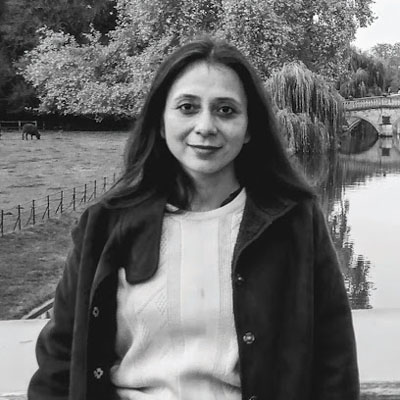It isn’t easy to make a person
It isn’t easy to make a person
non-person. It takes guts
(wrenched out of bellies they worked
so hard to fill). It takes balls
(quietly sat on when they come for the neighbours)
It takes a head full of ideas and a phone
full of contacts who will fetch (petrol, guns,
rope, match boxes, lists of their addresses)
It takes a heart that does not fail
when it sees (that the girl is so young
and the child so trusting, he would stop
crying now if only you would stop).
*
There was a country we could have been
There was a country we could have been
together – utterly shapeless
and well past reform
A laughing country with as many sides
as a well-cut diamond – tumbling valleys
of rusty lakes, rivers above,
seas to the right and left
The world would look and lust
for this land glistening emerald and sapphire
sitting in the sun rocking
on its heels with night’s cool laughter –
How they’d hate us and how they’d long
for our warmth, our knowing, our winking
and getting by
If the mist came down real thick
some morning with the blinding rain
with the mountains plush and forest thick
and the bears standing guard
while everyone was busy fighting –
could we be our country yet?
*
You understand, in the end
You understand women are broken
in cars and in bungalows where they are taken blindfold
and in camps where they put themselves together
with too little water and too much sewage
You do not understand men who pause
only to measure consequence:
Break this one? Take her womb,
her tender reassurances
to her own man?
You understand though
that some men must be enabled to halt
other men and women and demand to see identity papers
As for the rest, you call it senseless
crime although every sense is on high alert
every move considered
They begin with hitting and already know
what they’re going to do and already hate her for it
They expose her to the mob so they may strip
away her right to be who she is
As an expanse of skin and womanly parts
she is no longer who she thought she was
She is hateable now and hate is hardly a crime
Crime is that which is punished
after all
They take turns so they are bound
tighter by what they do
Brotherhood is the glue that binds
a community
They do it more than once
and urge other men in other places
to break other women until all are bound
by the thread of what they have done
No one can point fingers or raise brows
When they are old men
they will chortle with glee
at having lived a full life
free of consequence but for now
they are equipped with cars ropes blindfolds
They stroke their guns and talk
of what comes next
They will marry up or buy cheap houses
with gardens still intact, a few flowers still blooming
in pots that were bought by these women
When they get bailed out, you will understand
for men must be free to earn drive feed protect
You do not understand why women hold their tongues
why they disappear as witnesses when trials drag
for years and men petition the courts for leave
not to appear on grounds of old age and inconvenience
When they are released before time
and welcomed with open arms and flowers
you will say you do not understand the fuss
although you do understand that men can only be blamed
for what they do alone. What they do as men,
you blame it on war.
*
Author’s Bio:
Annie Zaidi is the author of Gulab, Love Stories # 1–14, and Known Turf: Bantering with Bandits and Other True Tales which was shortlisted for the Crossword Book Prize (non-fiction). She is the editor of Unbound: 2,000 Years of Indian Women’s Writing. She won The Hindu Playwright Award in 2018 for her play Untitled 1 and the Nine Dots prize in 2019 for her essay ‘Bread, Cement, Cactus’. Her novel Prelude to a Riot won the TATA Literature Live! Book of the Year Award—Fiction in 2020.

Subscribe to our newsletter To Recieve Updates
Usawa Literary Review © 2018 . All Rights Reserved | Developed By HMI TECH
Join our newsletter to receive updates